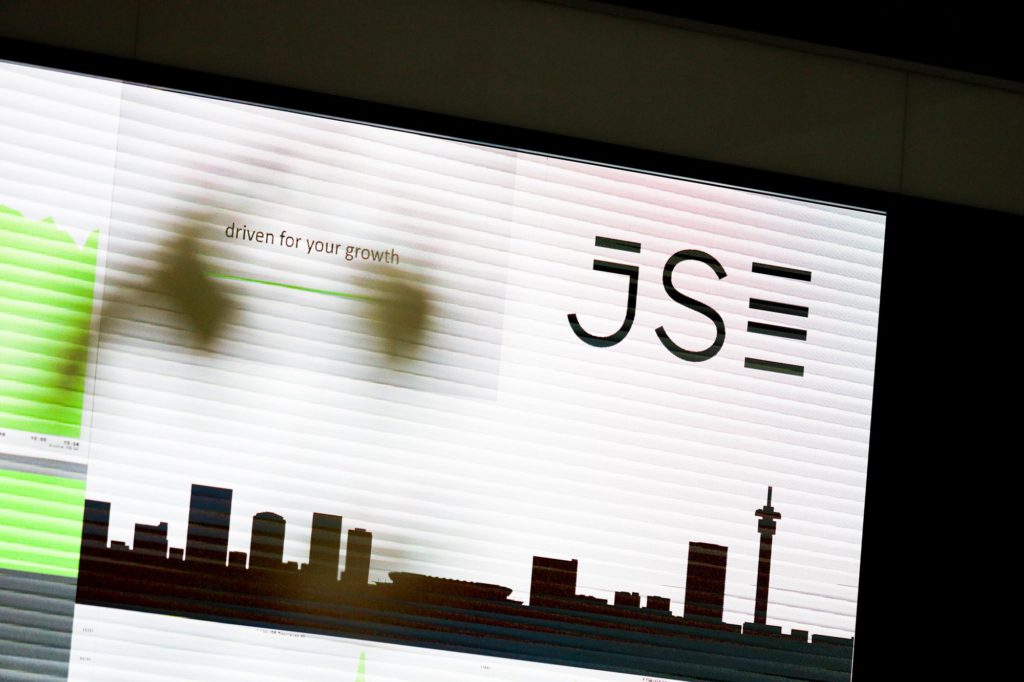(Bloomberg) —
A global surge in initial public offerings has so far eluded sub-Saharan Africa.
Companies have raised a record $467 billion on the world’s stock exchanges during the first eight months of this year, according to data compiled by Bloomberg. Yet in Johannesburg, home of Africa’s largest bourse, 21 companies have instead de-listed in 2021. Smaller exchanges in Accra, Nairobi and Lagos have been similarly quiet.
The world’s highest unemployment rate and a lack of confidence in South Africa’s economic recovery are pushing companies toward more affordable funding sources. Firms in the continent’s most-industrialized nation, especially smaller businesses, have been finding it easier and cheaper to raise debt to fund growth than issue shares, Mate Munalula, co-head of markets for Citigroup Inc. in the country, said an interview.
“Being listed can be perceived as more onerous, procedural and administrative when running a small entity,” he said.
Another reason is that technology and digital startups in the country are in short supply, yet that sector has accounted for a major part of the global IPO rush. Chinese ride-hailing giant Didi Global Inc. raised $4.4 billion in the U.S. in June, while KakaoBank Corp., South Korea’s first internet-only lender to go public, sold $2.2 billion of stock and soared more than 70% in its trading debut.
South Africa has two fast-growing tech firms in branchless lender TymeBank, backed by billionaire Patrice Motsepe, and payments company Yoco, but both have sourced cash outside the equity-capital markets. TymeBank raised $109 million in February, at a valuation of 8 billion rand ($530 million). Yoco attracted $83 million in July.
In Nigeria, fintech companies are emerging on the radar of high-profile investors. But U.S. firm Stripe Inc. agreed to pay $200 million to buy out Lagos-based Paystack, and Flutterwave Inc. said it would look to New York as a potential IPO destination.
Wireless carriers MTN Group Ltd. and Airtel Africa Plc have indicated a willingness to spin off fast-growing fintech or mobile-money arms, valuing them at billions of dollars. Though in both cases an IPO could be years away.
“When you look at disruptors that are listing to attract capital, in South Africa we’ve been quite a laggard,” said Kyle Wales, portfolio manager at Flagship Asset Management. “E-commerce penetration in South Africa is 3%. In China the same ratio is 25%.”
Three Firms That Opted Out
- Comair Ltd., the South African partner of British Airways, was put into bankruptcy protection amid Covid-19 travel restrictions. The carrier was later rescued by private investors and de-listed.
- Cartrack Holdings Ltd., a transportation-data company, was taken private by its founder and listed on Nasdaq under the name Karooooo Ltd. The firm needed more exposure to international investment funds focused on technology, Chief Executive Officer Zak Calisto said.
- Revego Africa Energy Ltd., an investor in South African renewable projects, had planned to raise as much as 1.5 billion rand but opted instead to pursue a capital raising in the private market, CEO Reyburn Hendricks said.
The lack of IPOs and exodus from the JSE Ltd. could also be linked to South Africa’s near-stagnant economy and spiraling unemployment figures. The corruption-tainted tenure of former President Jacob Zuma and the subsequent coronavirus pandemic have weakened investor risk appetite, said Citi’s Munalula, while a riot and looting spree that followed Zuma’s arrest in July only exacerbated the situation.
“The long and short of it is South Africa’s economy is the over-riding factor,” Munalula said.
Still, there are reasons to believe in a recovery. Economists surveyed by Bloomberg predict gross domestic product will expand 4.2% in 2021 after contracting the most in a century last year. Rising investment in renewable energy worldwide should also bode well for South African firms, which could benefit from a new government policy allowing more private power generation.
A number of companies are privately contemplating listings from 2022, according to Richard Stout, head of equity capital markets at Standard Bank Group Ltd.
Those to have made their intentions public include medical-cannabis firm Cilo Cybin Pharmaceutical Ltd., while Bushveld Minerals Ltd., a London-listed vanadium miner, has said it remains interested in a potential listing on the JSE.
South Africa’s large state-owned companies may also have scope to raise funds via an equity sale, though this may “require some mind-set change,” according to John Slettevold, head of South Africa at UBS Group AG. “The state-owned enterprises in South Africa have flooded the markets with debt and there should be space to add equity to this,” he said.
“We certainly don’t subscribe to the view that the JSE is facing an existential crisis,” Stout said.
(Updates with further comment from UBS in penultimate paragraph)
More stories like this are available on bloomberg.com
©2021 Bloomberg L.P.











